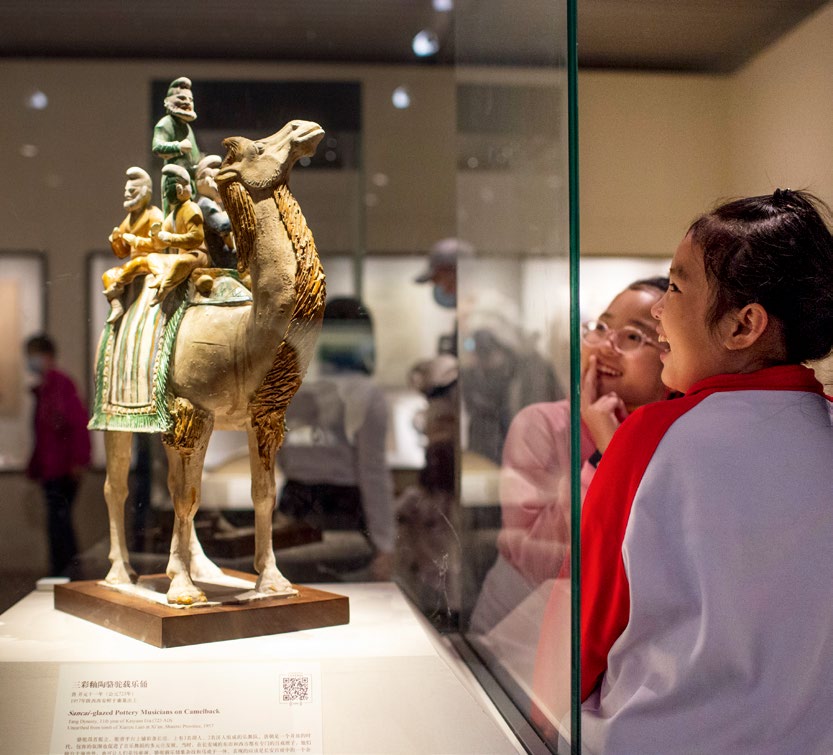Global Civilization Initiative: A Vision for Pluralism and Sustainable Progress

“Countries need to uphold the principles of equality, mutual learning, dialogue and inclusiveness among civilizations, and let cultural exchanges transcend estrangement, mutual learning transcend clashes, and coexistence transcend feelings of superiority.” This is a philosophically loaded statement given by Chinese President Xi Jinping, proposing the Global Civilization Initiative (GCI) at the CPC in Dialogue with World Political Parties High-Level Meeting held on March 15, 2023.
The GCI, introduced by China, champions the appreciation of civilization diversity, underscoring shared values, cultural inheritance, innovation, and international people-to-people engagement. Its goal is to cultivate harmony in diversity by integrating various cultures and heritages. The concept of the GCI for sustainable development has gained significant traction recently. It harmoniously aligns with the United Nations’ Sustainable Development Goals. Safeguarding and preserving cultural heritage is essential to achieving these goals. The initiative recognizes the importance of cultural diversity and facilitates global cooperation and exchanges, thus contributing to sustainable development endeavors worldwide.
History also reveals a tapestry of global civilizational initiatives. Some noteworthy examples include the UNESCO-initiated Silk Road Project, the Nara Document on Authenticity (1994) focusing on cultural preservation, and the Asian Alliance for Cultural Heritage Conservation, launched in Beijing in 2021. These efforts bridge the past, present, and future through cultural heritage, recognizing their connection to tourism, livelihood, and sustainable development.
The underpinning of these initiatives lies in a civilizational perspective. The GCI firmly holds that peace, development, equity, justice, democracy, and freedom are universal aspirations. It stresses the significance of nations acknowledging diverse values within different civilizations, while advocating against the imposition of ideologies or values onto others, which can trigger ideological conflicts. China’s ambition of building a global community of shared future demonstrates its dedication to finding common ground while embracing distinctions and nurturing global progress.
The GCI presents a novel approach to international cooperation. It stands as a testament to the principles of plurality, diversity, and dignity among nations, thereby taking a stand against the imposition of ideas on others.
By acknowledging the relativity of ideas and values, the GCI fosters mutual respect and cooperation among nations, cultivating an environment that champions inclusiveness and diversity. The imposition of ideas onto others can be likened to intellectual and cultural colonization. Through advocating equitable cooperation and shared benefits, the GCI seeks to address power imbalances, aiming for a more equitable and just global order.
A pivotal motivation driving the GCI is the aspiration to challenge the dominance of a few prevailing ideas over a multitude of others. The initiative endeavors to establish an alternative platform that champions fair development, social justice, and sustainable practices.
At its core, the GCI strives to pave the way for a more diverse and pluralistic global landscape. By advocating for the rejection of imposed values and models, the initiative upholds nations’ right to determine their development trajectories based on their unique historical, cultural, and socio-economic contexts. This steadfast commitment to self-determination and diversity of civilizations ultimately contributes to safeguarding and elevating human dignity on a global scale.
Through advocating for relative ideas, fostering diversity and pluralism, and opposing the imposition of ideas, the GCI seeks to redress the imbalanced influence of a select few over the broader populace. Emphasizing cooperation and respect for diverse development paths, the initiative envisions a world that upholds the well-being and dignity of all individuals. By accentuating the integration of diverse cultures, honoring heritage, and amplifying international cooperation, the GCI plays a pivotal role in championing sustainable development, thereby contributing to a shared future for humanity. With its alignment with the Sustainable Development Goals, the GCI holds the potential to facilitate a more inclusive, harmonious, and prosperous world.
The author is a Pakistani social scientist and chief executive of the Global Strategic Institute for Sustainable Development.
